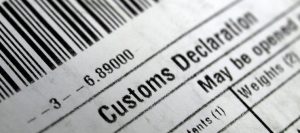
Unlawful Customs & Practices at Jamaica Customs Agency
Adrian Cotterell
by Adrian Cotterell
[email protected]
(876) 922-5860 or (876) 838-7608
Unlawful Customs & Practices at Jamaica Customs Agency
A judgment delivered by the Supreme Court on March 20, 2018 could pave the way for tens of millions of dollars to be recovered from the Jamaica Customs Agency by businesses that have been unlawfully fined for alleged breaches of the Customs Act.
In or around May of 2016, a US citizen attempted to board a flight set to depart from Montego Bay when she was found with a firearm in her luggage. In response to questions put to her by agents of the Jamaica Customs Agency, she stated that she had brought in the firearm into the island in her checked luggage when she had arrived some weeks prior. She was fined by Customs and was subsequently allowed to depart the island. Thereafter, the US-based airline received a letter signed on behalf of the Commissioner of Customs stating that it had committed three separate breaches of the Customs Act. It was fined $500,000 for making a false declaration, in that it had not declared that it was importing a firearm. It was fined $50,000 for evading customs laws and it was fined another $50,000 for importing a prohibited good.
Jamaica Customs’ letter stated that in order to approach the Commissioner for mitigation or remission of the penalty, it had to pay the entire sum as security and sign a “Consent Form A” admitting liability for the breaches. The exact wording of the form includes the following: “As the importer/ exporter of the goods/articles, I accept responsibility/ liability for the breach and consent to the Commissioner of Customs mitigating or remitting any penalty to which I am liable under the Act.” The airline took the Commissioner to Court.
The airline’s argument was that it is not accountable to Jamaica Customs for the contents of their passengers’ luggage, whether it is a firearm, a phone or anything else. Its duty is to ask passengers whether they are carrying firearms and other hazardous materials that affect the safety and security of the passengers and the aircraft. It was the passenger’s duty to declare any weapons in their luggage, the Transportation Security Administration’s (TSA’s) duty to scan outgoing passengers’ luggage and it was Jamaica Customs’ duty to collect their customs duties and/or stop the entry of prohibited items. In this case, not only did the passenger not inform the airline that she had a firearm in her checked luggage, she ticked “no” to the question on her Customs Form which asked if she was bringing “arms, ammunitions, explosives…or other weapons”. Yet it was the airline that was fined for making a false declaration, evading customs duties and importing a prohibited item.
It appears that Jamaica Customs is accustomed to levying penalties against airlines where these companies have no control over the contents of their passengers’ bags. It also appears that Jamaica Customs often levies penalties against the individual who is actually in breach as well, thereby gaining double the revenue.
When the matter came on for trial, the Commissioner of Customs, through the Attorney-General’s Chambers, did not mount a defence. The court quashed all of the fines against the airline. Moreover, the Court agreed with counsel from the Attorney-General’s Chambers that the “Consent Form A” that Customs created had no legal basis at all under the Customs Act. The Court added that the requirement to admit to the commission of an offence, as a precondition to cancelling or refraining from inflicting a penalty, could potentially have natural justice implications. In spite of this, and to our certain knowledge, Jamaica Customs has continued to use “Consent Form A” and has improperly insisted that liability be admitted and the full amount of the penalty paid in order to approach the Commissioner for mitigation or remission of the fine.
It might not be too late for persons or companies that have paid these hefty fines to Jamaica Customs on the basis of an unlawful demand to recover their money, depending on the particular circumstances. This case represents a significant victory, not only for airlines but also for anyone who’s been forced to accept liability for customs offences that they did not commit.
Published in the Jamaica Observer, March 28, 2018
Adrian Cotterell is an Associate at Myers, Fletcher & Gordon and is a member of the Firm’s Litigation Department. He may be contacted at [email protected] or myersfletcher.com. This article is for general information purposes only and does not constitute legal advice.

Good. They are so tief